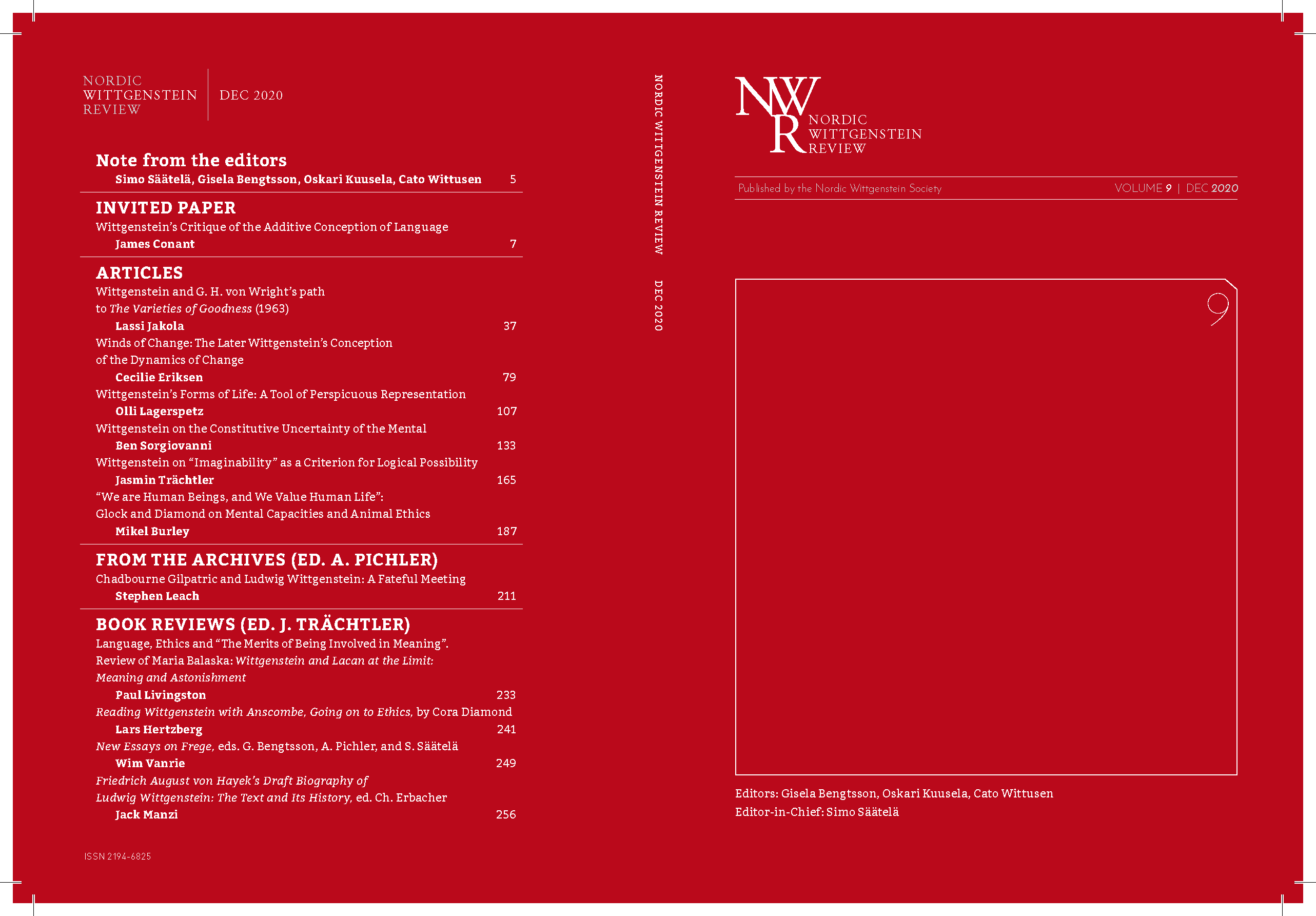“We are Human Beings, and We Value Human Life”: Glock and Diamond on Mental Capacities and Animal Ethics
DOI:
https://doi.org/10.15845/nwr.v9i0.3544Keywords:
animal ethics, Cora Diamond, Hans-Johann Glock, mental capacitiesAbstract
How should a philosophical inquiry into the moral status of (nonhuman) animals proceed? Many philosophers maintain that by examining the “morally relevant” psychological or physiological capacities possessed by the members of different species, and comparing them with similar capacities possessed by human beings, the moral status of the animals in question can be established. Others contend that such an approach runs into serious moral and conceptual problems, a crucial one being that of how to give a coherent account of the natural sense of concern for profoundly cognitively impaired human beings if moral status is assumed to depend on features that centrally include cognitive capacities. The present article discusses this debate with reference to Wittgenstein-influenced philosophers whose respective approaches, on the face of it, diverge dramatically. With a primary focus on Hans-Johann Glock and Cora Diamond, and a secondary focus on recent work by Alice Crary, I argue that, despite an overt disavowal of the kind of approach favoured by Diamond and Crary, Glock’s affirmation that we simply do “value human life” brings him closer to that approach than he acknowledges.
Downloads
Published
How to Cite
Issue
Section
License
Copyright (c) 2020 Mikel Burley

This work is licensed under a Creative Commons Attribution 4.0 International License.
NWR uses the Creative Commons license CC-BY.
Vol. 1-3 used CC-BY-NC-SA. The collected works copyright ownership for Vol. 1-2 were shared by Nordic Wittgenstein Society and ontos Verlag/De Gruyter.








